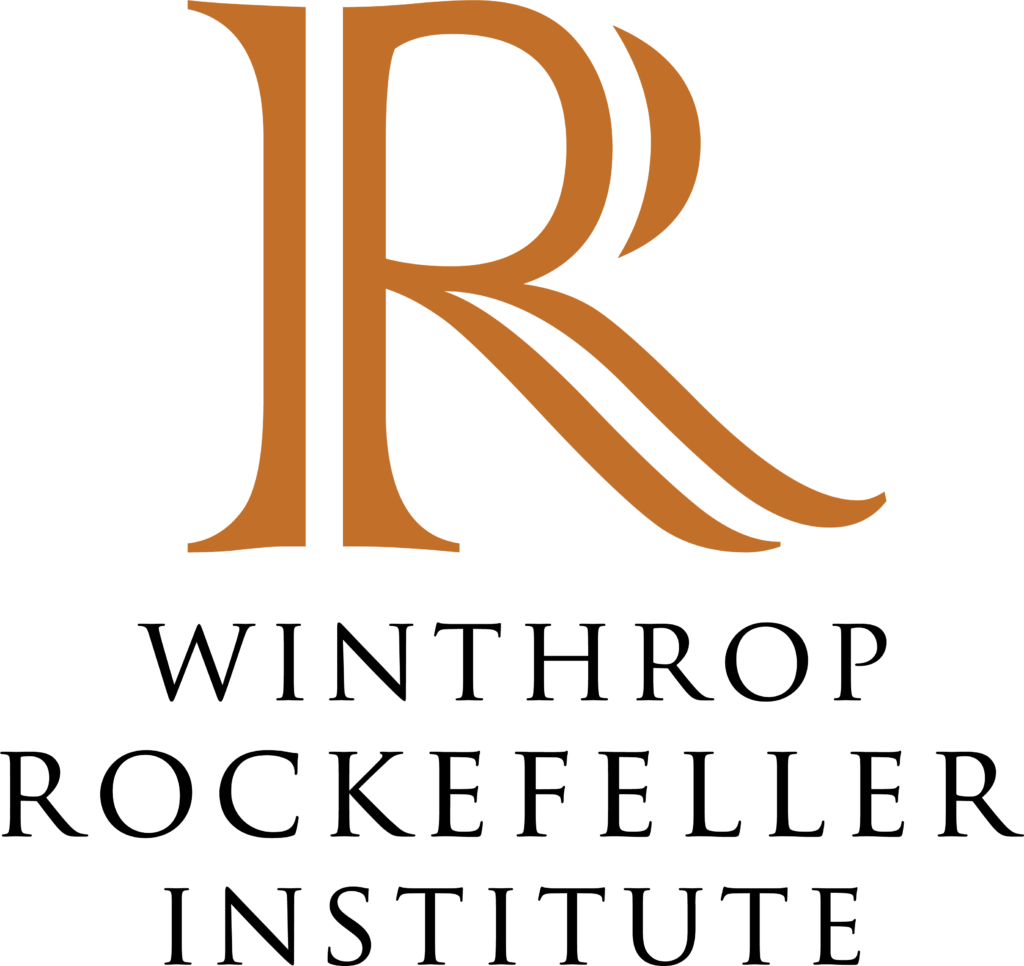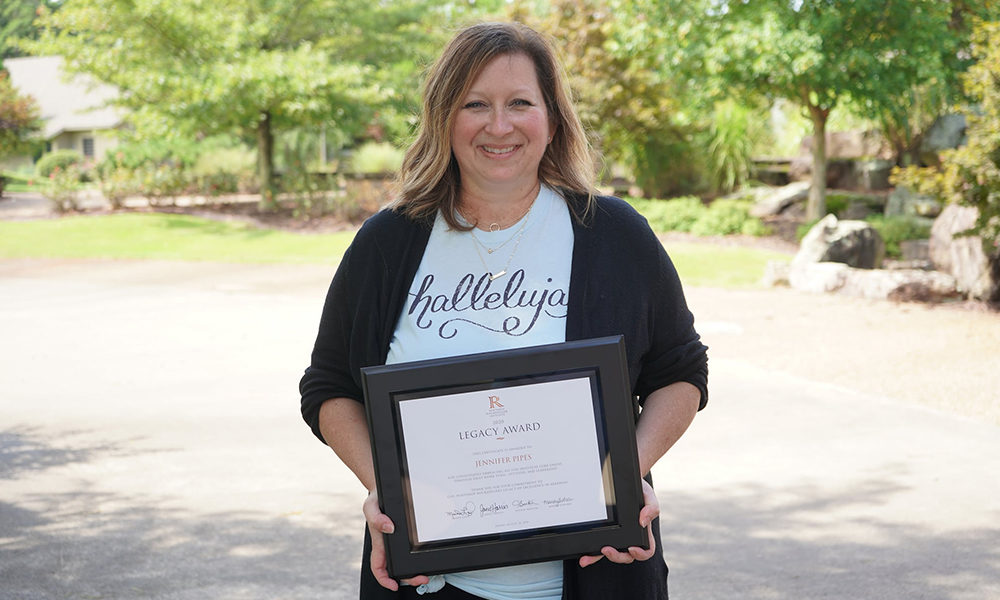At the Winthrop Rockefeller Institute, our mission is to combine collaborative problem solving, respectful dialogue, and diversity of opinion to create positive change and lasting impact. This is known as the Rockefeller Ethic. Our employees serve the Institute’s mission by embodying these five Core Values in their day-to-day work:
- Believe the mission.
- See the possibilities.
- Focus on we, not me.
- Do the right thing.
- Have fun!
Each quarter, employees nominate their fellow employees for Core Value Awards. Out of those who win an Award, one is chosen each year by senior leadership for the Legacy Award — a title given to an employee who is believed to have best lived out the five Core Values and the Rockefeller Ethic over the last fiscal year. For 2020, that employee is Jennifer Pipes.
As Director of Human Resources, Jennifer Pipes has been instrumental in the Institute’s handling of the COVID-19 pandemic.
In addition to creating our re-opening plan, she has taken every measure to make sure employees are aware of new health and safety procedures, and the benefits and support available to them during this time. Her work and willingness to guide other employees through this situation was noticed, earning her this year’s Legacy Award.
“More than anything, I was humbled,” Pipes said. “Any time I’ve been nominated or selected for a Core Value Award, it’s nice to be recognized for your efforts. At the same time, I’m not super comfortable being the center of attention. I just want to do my best work because that’s what my faith requires of me, and I have peace knowing that if I do that, my work will be fulfilling and satisfactory to those I’m working with and for.”
Of her recent work, Pipes said that it was challenging, that it’s easy in times like these to feel overwhelmed and to feed that feeling.
“We could have very easily gotten beaten down, but throughout the process I would try to remind myself that this is a learning opportunity,” she said. “I’m thankful for my colleagues, who were learning with me, and for all of our employees and their patience.”
For almost any problem related to HR, she said, there is an answer out there — whether it’s through reading case law, contacting other professionals, or even a Google search. There were no answers for the COVID-19 pandemic. She would pour over new legislation that came out earlier this year and spend hours upon hours on the phone or Zoom with senior staff discussing ways to keep Institute employees, and the Institute’s business, safe.
“We really did put a lot of effort into finding a balance between what’s good for the Institute and what’s good for employees,” she said. “That’s challenging enough even when there’s something to reference, but it was even more so since there is no history of ‘best practices’ for a situation like this.”
Pipes has worked for the Institute since 2013, joining with a stellar record in HR management. After graduating with a bachelor of science degree in business administration from Arkansas Tech University, she started work in marketing and sales for a family of environmental firms in Russellville. She noticed that each firm had their own benefits, policies, and procedures, so she proposed a centralized HR department.
“I wanted to take that on and they let me have it,” she said. “I was given the chance to build a department from the ground up, to formulate consistent procedures and benefits so that when people transferred between firms, it was seamless.”
Pipes continued that work for five years, then took a position as an HR manager for Friendship Community Care, a nonprofit in Russellville that provides services to developmentally disabled people from birth into old age. Again, she developed a centralized HR department where there was none.
“On a general scale, HR is a service department,” she said. “Our responsibility is to provide friendly, helpful service to the employees. At the Institute, part of our mission is to give everyone a voice, having everyone participate in respectful conversations about difficult topics. From an HR perspective, I can take that and use it in my own work with employees. I appreciate that the Institute encourages that type of thinking.”

